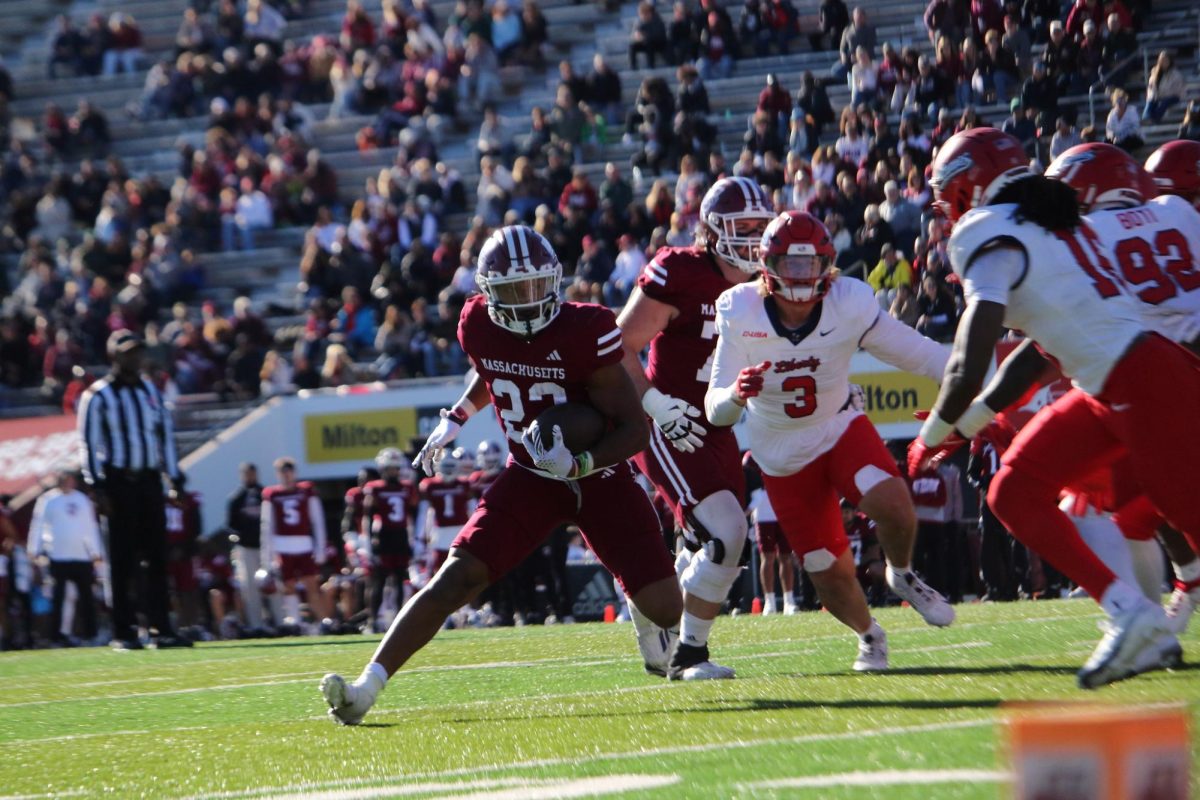Almost two years after her disappearance, University of Massachusetts Amherst students can still see flyers posted around town, the word “Missing” printed above Maura Murray’s now-familiar face.
Her story remains at a grisly stand-still as her family voices disappointment with New Hampshire authorities.
The 21-year-old nursing student disappeared on Feb. 9, 2004 after leaving her dorm room in Kennedy Hall at UMass and heading through New Hampshire. Maura’s parents suspected foul play from the beginning, yet many investigators still say Maura ran away, or took her own life.
Prior to her disappearance, Maura withdrew $280 from an ATM and e-mailed her professors to tell them she was going home for the week because of a death in the family, although there had been no death.
Around 7 p.m. that evening, she crashed her car into a snow bank on Route 112 in New Hampshire, several miles from the Vermont border. Police say a witness offered help, but Maura refused and told the witness not to call police. The witness also told officials that she seemed to be intoxicated, but uninjured. When emergency workers arrived, Maura had vanished, and most of her belongings were left behind in the car.
Police said they see no evidence of foul play after searching the scene of Maura’s minor car accident on Route 112 in Haverhill, N.H. However Maura’s parents feel that investigators should take a fresh look in efforts to recover their daughter. The Murray family feels police do not take seriously the possibility that Maura may have been abducted.
Maura’s father, Fred Murray, met with Gov. John Lynch last year to ask for his help in getting records of the investigation. Since then, Murray has sued Lynch, state police and other law enforcement agencies in the hope of obtaining information from the investigation, such as accident reports, an inventory of items taken from her car, a copy of her computer hard drive, and a surveillance tape from a liquor store where she made a purchase.
The lawsuit claims that Murray was denied this information because the records are confidential, and their release would constitute an invasion of privacy.
On Thursday, a New Hampshire judge ruled against Murray in the lawsuit.
“Release of the records could jeopardize the investigation and lead to, among other things, destruction of evidence, intimidation of witnesses and loss of communications with entities providing confidential information,” wrote Grafton Superior Judge Timothy Vaughn in his ruling.
Police have said that they talk with Murray on a regular basis when new leads appear. However, Murray says that he hasn’t gotten any feedback from the governmental investigators in several months. This leads the family to wonder if the investigation into Maura’s disappearance is ongoing.
The idea that Maura could still be in danger is the most compelling reason for disclosing the information because it could aid in locating her, according to the suit.
Though investigators might write off this notion because it is based on a “gut feeling,” Murray insists that he knew his daughter too well to believe that she would go missing on her own accord. He believes it more likely that she was the victim of foul play.
Skepticism of the New Hampshire authorities’ fortitude in finding their daughter has led the family to take the investigation under their wings as best they can. Along with continually searching the wooded area where Murray disappeared, Fred Murray has gone in search of clues in the area’s local bars, hoping to overhear any information that could lead him in the right direction.
Additionally, licensed private detectives took on the case, thanks to the Molly Bish Foundation, which has partnered with the Licensed Private Detectives Association of Massachusetts. Since last year, the program has offered free investigative services to the unsolved cases of missing women, some of which date back to 1984.
The new private investigations intend to re-examine the angles of Maura’s case, and re-interview everyone involved.
There is also new publicity being focused on Maura’s disappearance, which might lead to a greater public outreach and efforts to help her safe recovery. ABC newsmagazine “20/20” will feature Maura’s case next month.
A Web site being maintained for Maura at www.mauramurray.com says that a $40,000 reward is being offered for any information that might help Maura’s safe return.
Maura had transferred to UMass from the U.S. Military Academy after spending three semesters at West Point. She was on the roster of the UMass women’s track and field team and worked in a local art gallery. Friends and family described her as a quiet woman who didn’t mingle much with classmates.






